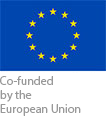Search engine fraud
Search engines like Google, Bing and Yahoo guide us through the web. You type in a search term and they immediately serve up the most relevant results. Unfortunately, these sometimes include fraudulent websites, so be careful when you click on a link.
The higher a website appears in your search results, the more likely you are to click on the link. Scammers capitalise on this by buying ads and cleverly using popular keywords. Sometimes this makes their website appear at the very top of the results list, and you unwittingly click on their link.
Some examples of search engine fraud:
- You’re travelling to the United States soon and need an ESTA. When you search for it via Google, the official visa service doesn’t appear at the top of the list. Instead, you’re directed to a commercial company that applies for the ESTA on your behalf for a fee. As a result, you’ll pay more than if you’d applied for the visa directly. This isn’t a scam, but it is misleading.
- You pull the front door shut behind you and realise you’ve just locked yourself out. In a panic, you search for a locksmith and contact the first company recommended by the search engine. They come to your place and help you out, then present you with a giant bill. If you refuse to pay it, their communication becomes more and more aggressive.
- This practice also happens if you need a pest control company. Clients sometimes receive bills of more than €1,000.
- Are you looking for affordable firewood online? The sellers of firewood and pellets that appear at the top of the search results list aren’t always worthy of your trust: you order and pay, but delivery never comes.


